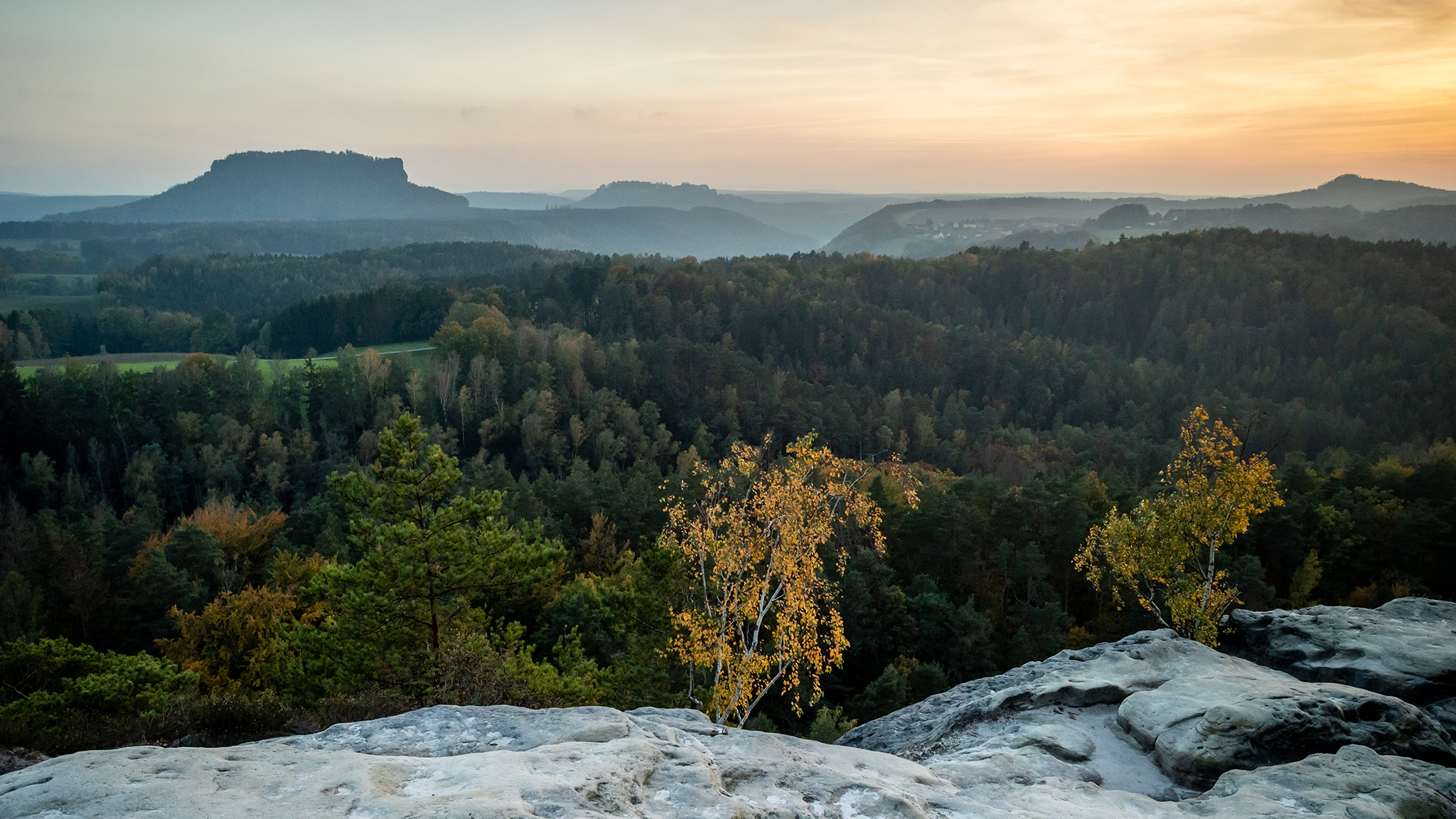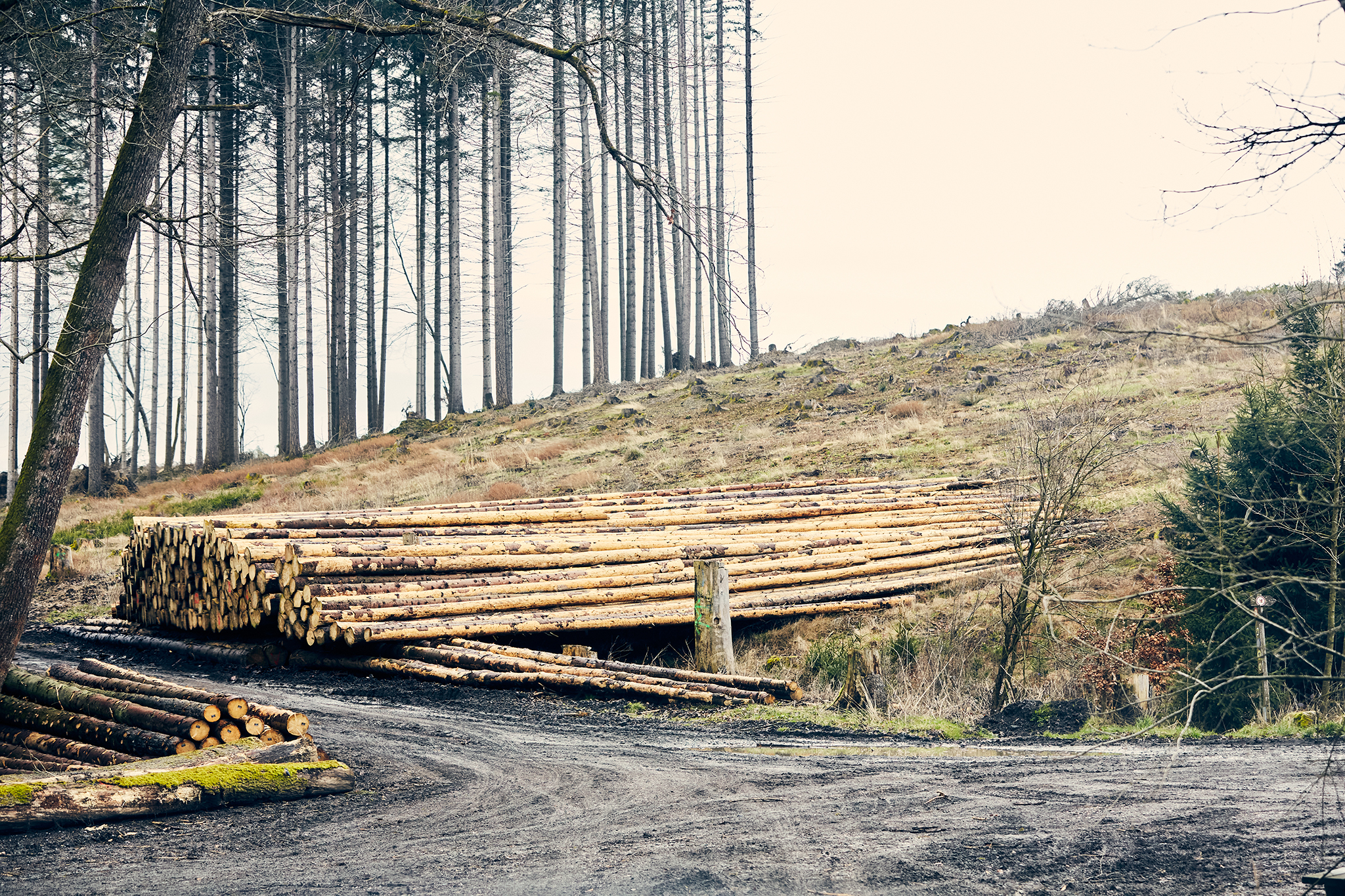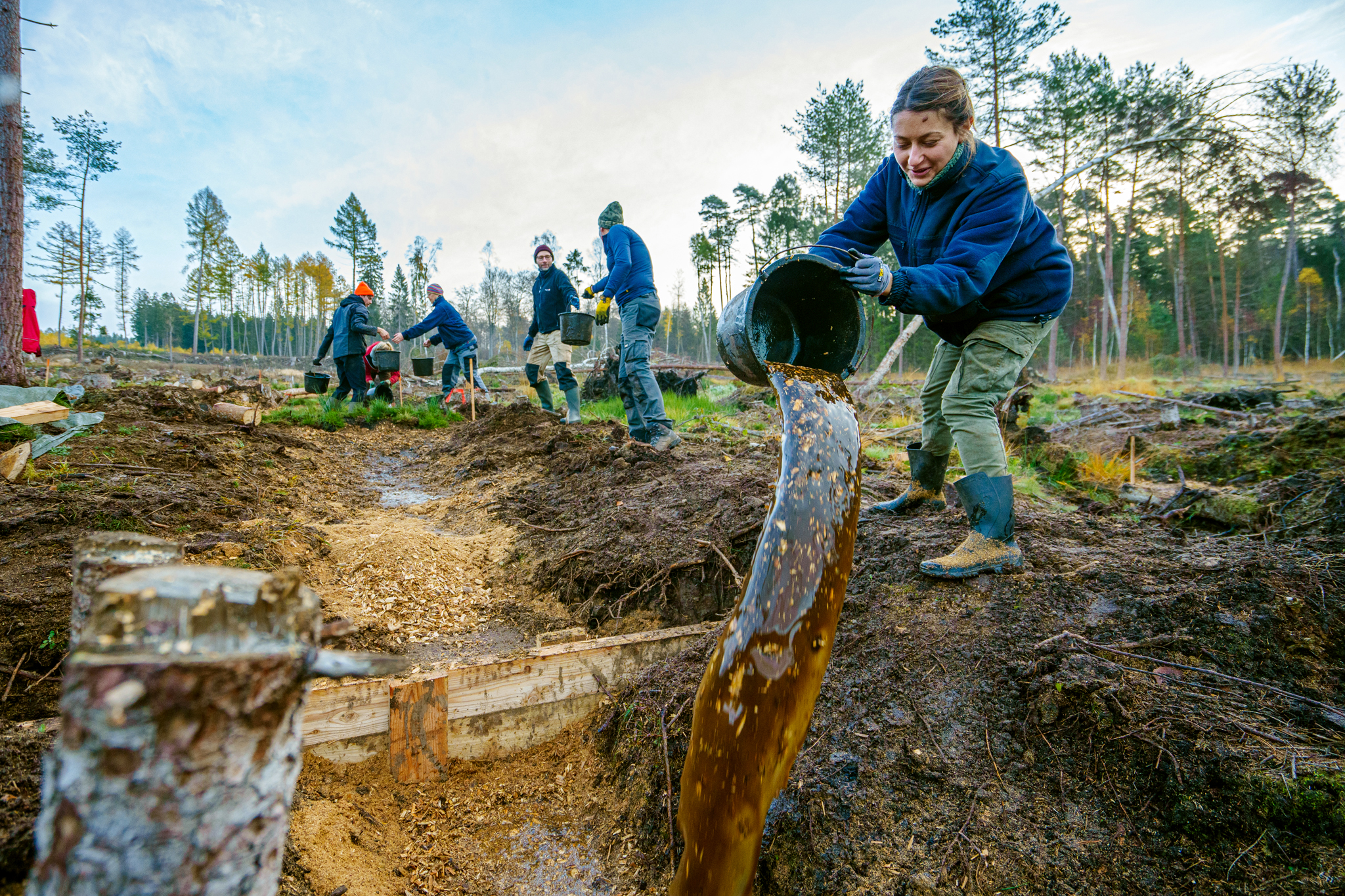Bergwaldprojekt e.V.
who & why & what
Why forest?

Natural forest communities are biocoenoses of innumerable species and are therefore particularly important for biodiversity, i. e. the abundance of life.
Near-natural mountain forests of the low mountain ranges and the Alps offer protection against erosion, flooding, drought, rockfall and avalanches. Together with the peatlands they are important for the climate. The forests generate drinking water, filter the air, cool the landscape and store carbon. More than half of Germany consists of mountainous areas, which are mostly forested.
The Situation of the Forest in Germany
For decades, Germany's forests have been weakened by high levels of pollutants from traffic, industry and agriculture. In addition to the primary damage to leaves and needles, the pollutants acidify the soil in the long term and damage the fine root system of the trees. Over-fertilization with nitrogen also damages forest ecosystems. Excessive populations of hoofed game (roe deer, stags and, in the mountains, chamois) still bite too many young trees. As a result of hunting and forestry mistakes, many forest stands are unstable monocultures, which are particularly susceptible to storm damage and insect infestation.
For years, forest ecosystems have been additionally strained by the effects of climate change. In Germany, over 600,000 hectares of forest have officially died in recent drought years. That is over five percent of Germany's forests. This development is worrying. The causes are man-made. Spruce and pine monocultures, which account for more than half of Germany's forests, are the most endangered. Shortcomings in professional practice, such as over-exploitation of stands and soil compaction, are causing severe damage to forest communities.
We must do everything we can to reduce the pressure on forest ecosystems and strengthen the resilience of our forests. The forest can only adapt to changing environmental conditions in the long term. Natural forest communities with a wide range of native tree species offer the best conditions for this. Forest restructuring in favor of native tree species and ecological forest and hunting utilization contribute to the diversity and stability of forests far from nature. In addition, as stated in the National Strategy for Biological Diversity (2007), at least 5 % of the forest area should be taken out of use to enable forest development unaffected by humans. In a meaningful network system, important conclusions for commercial forests can then be drawn from the natural processes and retreat areas for endangered animal and plant species can be created.
Bergwaldprojekt e.V.
The Bergwaldprojekt e.V. has been committed for 30 years with thousands of volunteers every year to the protection, preservation, care and maintenance of the forest, in particular the mountain forest and the cultural landscapes, and to the promotion of an understanding of the interrelationships in nature, the concerns of the forest and the dependence of humans on these bases of life. To this end, the Bergwaldprojekt works annually in approx. 190 project weeks with volunteers in forests, peatlands and open-air biotopes at various locations in Germany. The purpose of the association is the protection, conservation and restoration of ecosystems, the promotion of awareness of the connection with nature and its irreplaceability, as well as actively helping to shape the socio-ecological transformation in society. To this end, the mountain forest project works with volunteers in forests, peatlands and open landscapes in Germany.
The aims of the work assignments are,
> to protect, preserve and restore biodiversity and the diverse functions of ecosystems,
> to make participants aware of the importance of and threats to our natural resources and
> to encourage society to use limited natural resources in an environmentally friendly and socially just manner.
Projects
Under expert guidance, silvicultural and nature conservation work is carried out that makes ecological sense and contributes to near-natural forest and landscape development. The non-profit work takes place in public forests, nature reserves and other protected areas in cooperation with local forestry and nature conservation officers.
Each project assignment is planned, prepared and supervised on site by an experienced and qualified project manager from the Bergwaldprojekt. They are supported by trained volunteer group leaders.
Projects are organized and carried out as activity weeks and days for adults, young people, people with disabilities, young people from child and youth welfare facilities, families, people with a migration background, companies and educational institutions.
The activities are funded by membership fees and private donations, contributions from project partners, cooperation contributions from companies and funding from governmental and non-governmental organizations. The origin and and use of funds are published annually. Donations from organizations and companies whose actions are recognizably clearly contradict the UN Sustainable Development Goals are rejected
Results
> Nearly 6 million local trees planted
> More than 600 ha of biotopes for capercaillie, birch and hazel game maintained
> Over 3000 sq m of peatlands rewetted
> Over 20.000 km of game protection fences dismantled
> Participants so far: 50.000
Participate
Participation is free of charge for the volunteers. The journey must be organized by the volunteers themselves – we recommend using the discounted Bergwaldprojekt-Ticket of the Deutsche Bahn for booking (German), if you have any questions please contact our information service: 0931 452 62 61 or by e-mail: info@bergwaldprojekt.de, we speak German, English and on request Arabic). The Bergwaldprojekt bears the costs for accommodation, food and project management and provides the necessary tools and vehicles. Approximately five weeks before the project weeks start, we will inform you about the details of the meeting point, individual equipment, etc. by mail or e-mail. If you are missing equipment, please call our information service, maybe we can provide you with some of the needed items. In case of cancellations within 21 days before the start of the project or in case of no-shows, we reserve the right to charge a service charge of 50 Euro.
Weekly Schedule
The week starts on Sunday evening. All participants arrive together and leave the following Saturday morning. During the week everyone stays in the accommodation, we work, eat and sleep in common rooms. Details of the accommodation can be found on the detail pages in the dates on the website. If you have any questions about gender segregation etc. please feel free to call us. From Monday morning we work on the areas.
Procedure of a typical project day:
> Getting up at 6.00 am, breakfast. Departure to the project sites in the forest,
> briefing on the work and off you go.
> Return to the hut in the late afternoon,
> relax,
> Dinner and cosy get-together.
The works may vary from those indicated in the program. One excursion of at least half a day is scheduled for each week. Meals are vegetarian or vegan and as far as possible adapted to the seasonal food supply and regional cuisine. Our chefs will be happy to accommodate any intolerances. A tetanus vaccination is recommended for each trip and health insurance is required. Unfortunately, dogs are not allowed to be brought along.
For further questions please contact our information service: info@bergwaldprojekt.de, phone: 0931-452 62 61
History and organization
The Bergwaldprojekt was founded in 1987 against the backdrop of the forest dieback debate with its first mission in Switzerland. The Swiss Bergwaldprojekt foundation was established in 1990, followed by the German Bergwaldprojekt association in 1993 – after a first German project in 1991 in St. Andreasberg in the Harz Mountains.
The Bergwaldprojekt has its origins in the mountain forest. It is an example of the importance of and threat to natural ecosystems and our ecosystems and our cultural landscape. The non-profit association is independent, non-partisan and ideologically neutral. It is made up of supporting members and up to 25 voting members. Other bodies of the association are the Executive Board and the supervisory board.
The association employs numerous staff to implement its goals. For the cooperation and all those involved in the project assignments are subject to a binding code of conduct. The Bergwaldprojekt is active in Germany and other countries. Information on the association and the projects can be found at www.bergwaldprojekt.de.
Vision

People have an integral awareness of living sustainably and in harmony with nature and organize their lives accordingly.
Everyone is happy.
Imprint
Bergwaldprojekt e.V.
Otto-Hahn-Str. 13
97204 Höchberg
Phone: 0049 (0)931 - 45 26 261
E-Mail: info@bergwaldprojekt.de



